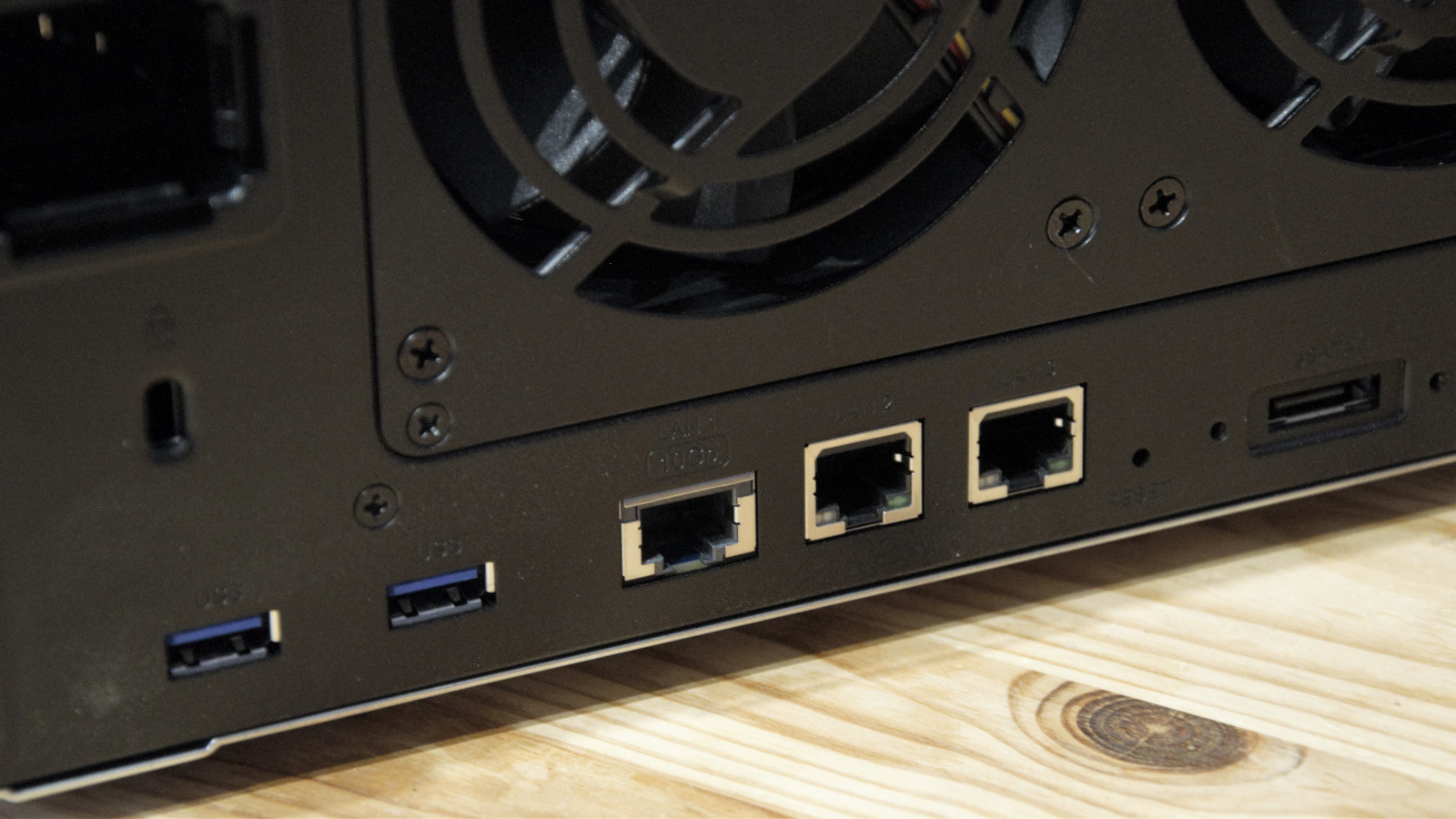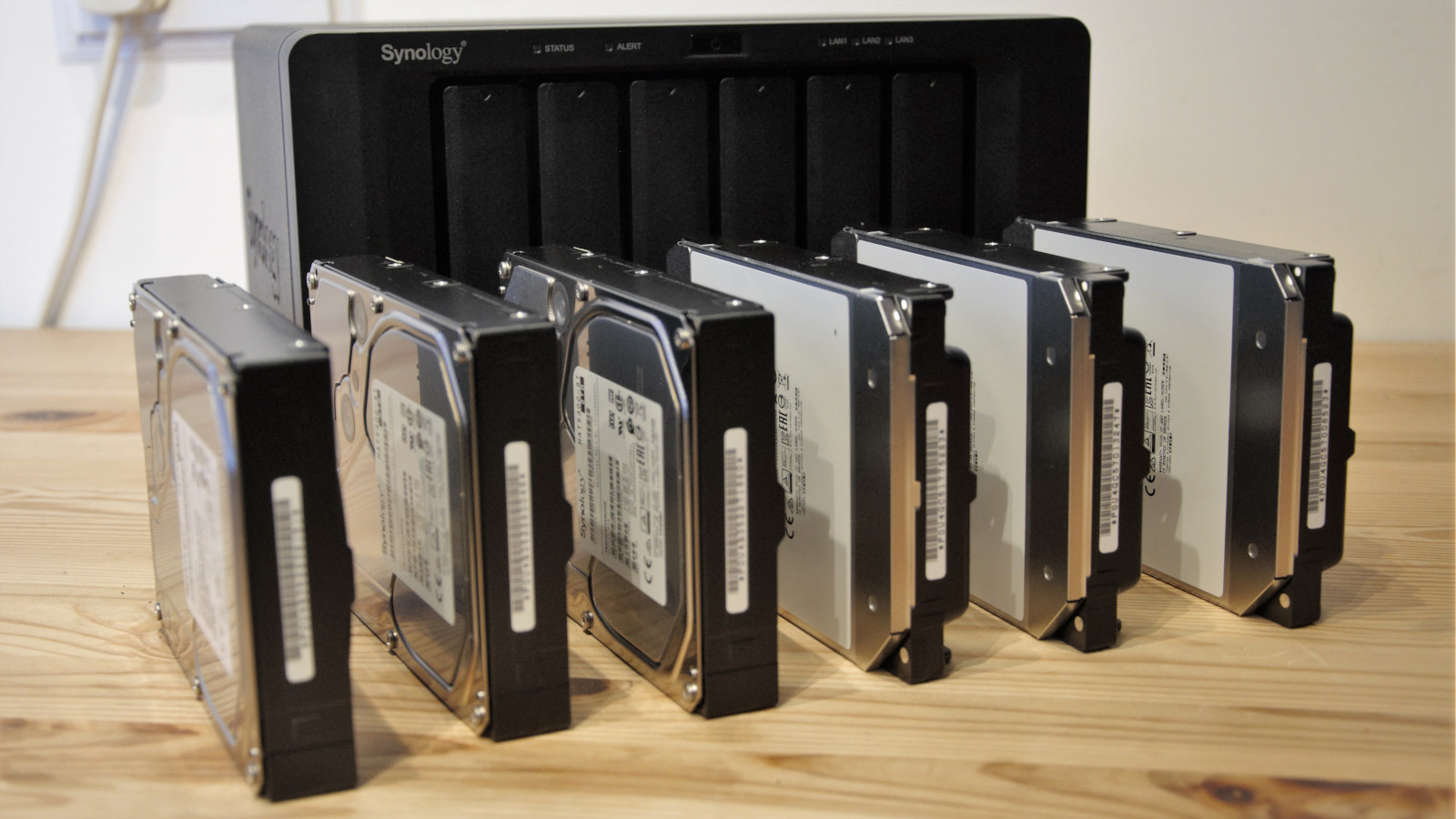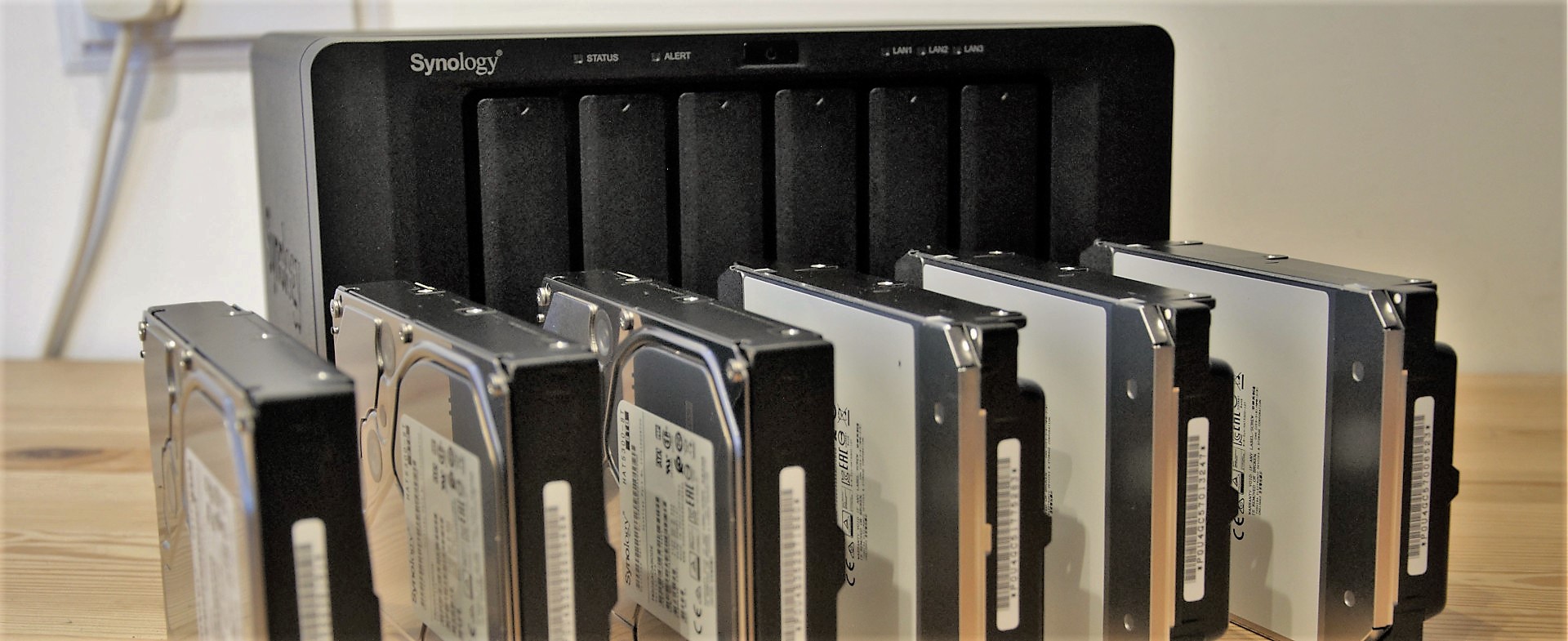Why you can trust TechRadar
Performance
With a modest Xeon processor inside, most customers would expect good performance from this platform even under loading, and it does run well.
This XS+ variant uses an entirely different architecture to the standard DS1621+ that uses an AMD Ryzen V1500B, where this has the Intel Xeon D-1527 at its heart.
On paper, the difference between these chips is remarkably small, as they are both quad-core, 2.2GHz base clock 64-bit processors.
The older Xeon D-1527 (2015) can turbo boost to 2.7GHz as required and has a little extra On-chip L2 + L3 cache, but the newer AMD Ryzen V1500B (2018) is dramatically more power-efficient.
The AMD chip uses a maximum of 16 watts, where the Intel chip consumes more than double that at 35 watts. Considering that most NAS boxes remain powered 24/7, this might have been an excellent reason to stick with the AMD CPU.
Benchmark’s put these processors as very close, maybe with a slight advantage to the Intel chip, but this processor alone hardly justifies the significant price difference between the DS1621+ and the DS1621xs+.

For anyone buying either the DS1621+ or DS1621xs+, the range of performance that is available is wide, as both offer LAN connectivity that can be significantly upgraded.
Sign up to the TechRadar Pro newsletter to get all the top news, opinion, features and guidance your business needs to succeed!
The DS1621xs+ addresses many of the bandwidth concerns that we’ve expressed when covering products like the DS1520+. These lower spec machines have plenty of drives, a decent amount of processing power, caching, and the same expansion possibilities of using the external DX517 option.
But they lack the 10GbE networking needed to distribute this power, and by using the PCIe slot, the DS1621xs+ can add another four of these ports to the one it gets inherently.
Five 10GbE ports can support many users simultaneously, but having this much network bandwidth shifts the logjam elsewhere. That place being internally SATA III, and the external eSATA connections.
With each of the external boxes only capable of around 500MB/s transfers, the burden falls on the internal storage and roughly 1,200Mb/s of throughput using conventional hard drives. Even combined and supported by NVMe caching, this drive system couldn’t keep a potential 52Gbit/s of network bandwidth fully saturated.
There are two possible solutions to this problem, neither of which Synology seems keen to embrace.
One of those is to allow the NVMe drives configured as high-speed storage and not just cache. And, the second if for them to use a more concurrent and appropriate external storage technology, such as Thunderbolt 3 or USB 4.0.
That this machine is still using USB 3.0, now renamed USB 3.1 Gen 1, is more than disappointing. Maybe it is that Synology didn’t want third party hardware to eat its DX517 sales by using USB 3.2 Gen 2 or even Gen 2x2 to provide 10Gbit or 20Gbit paths for external data, and not the 6Gbps maximum of eSATA.
In conclusion, the performance of this unit is good, but it might have easily been even better if Synology would only replace the DX517 and stop flogging the long-deceased equine that is eSATA.
Competitors
The price of the DS1621xs+ is a problem considering some of the more affordable alternatives available.
Netgear has its ReadyNAS 626X costing about half the price, with six bays, the same Xeon CPU and dual 10GbE ports as standard and a PCIe slot free. But, it only has a single eSATA port and 8GB of RAM.
However, with the free PCIe slot, this machine might be upgraded with Thunderbolt or more 10GbE ports at a greatly reduced cost over the DS1621xs+.
Another model that undercuts the Synology offering by almost half is the Asustor LOCKERSTOR 8 (AS6508T), an 8-bay NAS using the Intel Denverton-based Atom C3538 Quad-Core CPU. It comes with two each of 10GbE and 2.5GbE LAN ports, up to 64GB of RAM, and two USB expansion boxes that can increase the number of drives to 16.
But the biggest challenge this product has is Synology’s own DS1621+ model, which includes almost everything in the DS1621xs+ with the exception of the 10GbE LAN port.
As it uses a more power-efficient CPU, it can be upgraded to 10GbE via the PCIe slot and runs the same impressive selection of DSM applications.
Synology does give the DS1621xs+ a five-year warranty, two more than its sibling, but it is possible to take out a warranty extension to match this for around $100.
Based on the excessive price difference between these remarkably similar machines, it might be more cost-effective to buy two DS1621+ systems and sync the contents using a dedicated PCIe card 10GbE backchannel connecting them than to use a single DS1621xs+ and an expansion box.

Final verdict
A deep dive into the DS1621xs+ doesn’t come up with any plausible explanation as to why it is double the cost of the base DS1620+ when its only significant upgrades are a Xeon processor of dubious value and a single 10GbE port.
Yes, the DS1621xs+ can handle 2,000 concurrent connections, double that of the DS1621+, but the number of scenarios where a business would point that many users at this hardware are limited.
If anything, the DS1621xs+ makes us appreciate how good a deal the DS1621+ might be, if nothing else.
That said, when you consider that mounting six 12TB Synology branded drives inside this NAS will cost an additional £2,200 or more, then maybe the cost of the box a lesser factor.
Overall, the DS1621xs+ is a solid platform, undermined by a Synology strategy that wants to keep the ageing DX517 and eSATA technology from 2004, relevant today.
Those considering this should seriously consider the excellent DS1621+ with a 10GbE LAN card and save themselves a chunk of change.
Mark is an expert on 3D printers, drones and phones. He also covers storage, including SSDs, NAS drives and portable hard drives. He started writing in 1986 and has contributed to MicroMart, PC Format, 3D World, among others.

